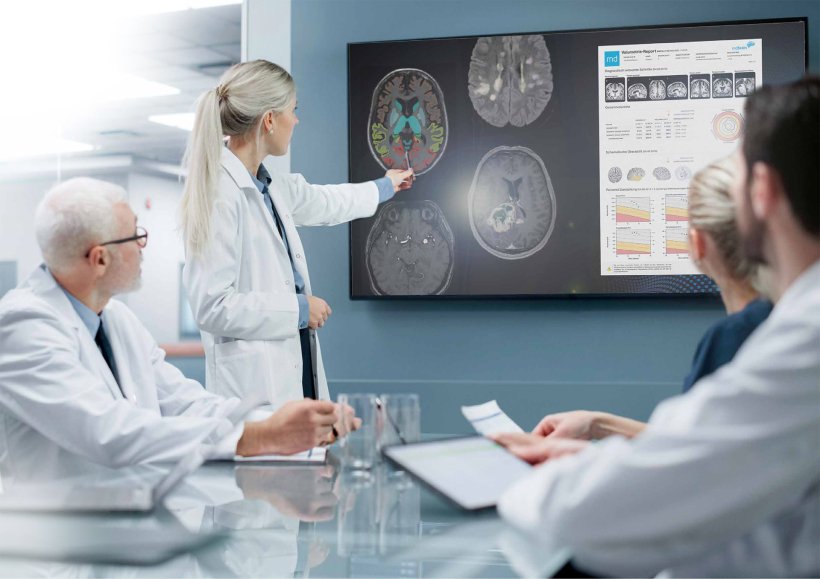Overview:
Yes, artificial intelligence (AI) can possibly observably upgrade demonstrative precision in medical services.

How it's done:
Design Acknowledgment: AI algorithms can investigate significant measures of clinical insights, for example, impacted individual realities, lab impacts, imaging examines, and genomic data. By recognizing unpretentious styles and connections in this data, computer based intelligence can be a helpful asset in the forecast of different illnesses and conditions.
Quicker Finding: AI-powered diagnostic systems can break down clinical pictures, including X-beams, X-rays, and CT filters, much quicker than human radiologists. This can cause faster determination and cure choices, predominantly in crisis conditions where time is critical.
Diminished Mistake Rates: Human error is inborn in logical examination, but AI systems can assist with decreasing demonstrative mistakes by offering extra help and improving the precision of human navigation. AI algorithms can hail likely anomalies and also outline them through medical services subject matter experts, helping to hold onto ignored discoveries and avoid misdiagnoses.
Customized Medication: AI can look at an impacted individual's specific hereditary make-up, logical history, and various variables to give revised symptomatic experiences and cure ideas. This method, known as accuracy cure, can prompt more noteworthy, strong, and custom-made cure plans for individual victims.
Remote Observing: AI-powered devices and wearable sensors can continually show victims' wellness fame and ready medical care merchants to any with respect to changes or irregularities. This proactive way to deal with the following can assist with identifying wellness issues ahead of time and save you complexities.
Expanded Choice Help: AI systems can work decision-help gear for medical services transporters, giving confirmation by basically putting together clues and logical clues with respect to the element of care. This can help clinicians pursue extra-educated decisions and upgrade, generally speaking, indicative exactness.
Generally, AI holds a striking commitment to upgrading analytic precision in medical services through utilizing records-pushed experiences, speeding up the demonstrative method, bringing down goofy statements, and allowing customized and proactive consideration. Be that as it may, it's fundamental to coordinate AI technologies mindfully and morally into logical work-out while ensuring patient security and keeping in touch in medical services transport.
Read more: How is technology revolutionizing healthcare